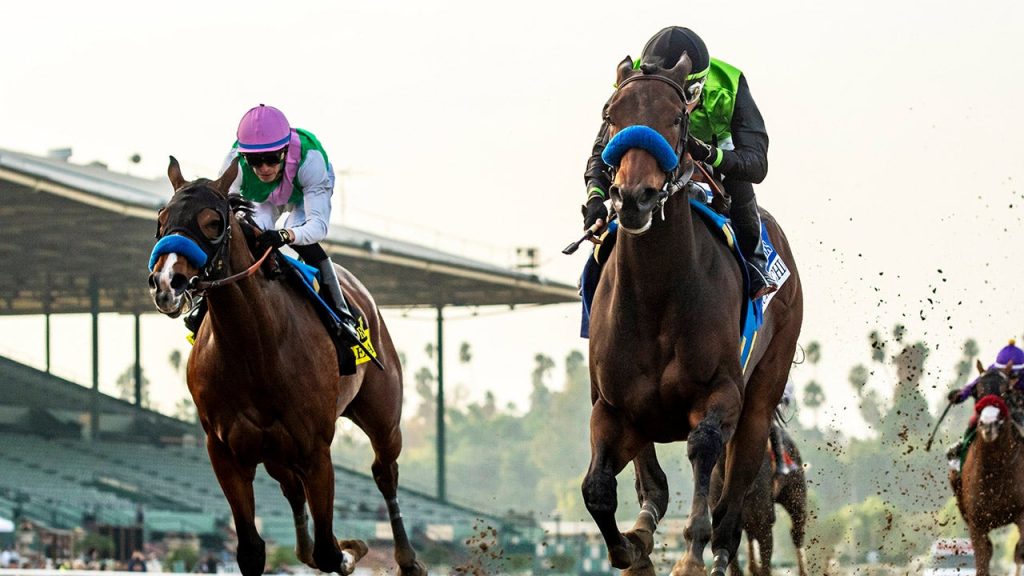The devastating wildfires sweeping across Los Angeles County have left a trail of destruction, claiming lives, displacing thousands, and disrupting daily life, including impacting the world of sports and entertainment. Over 12,000 homes have been reduced to ashes, and the death toll has tragically reached at least 11. While firefighters battle tirelessly to contain the blazes, the impact of the fires extends beyond immediate property damage, affecting air quality, transportation, and community events.
Santa Anita Park, a historic horse racing track in Arcadia, became a focal point of the unfolding crisis. Initially planning to proceed with races on Saturday, track officials were forced to cancel the events due to the escalating Palisades Fire, which threatened nearby communities. While air quality at the track itself remained within acceptable limits set by racing authorities, the broader impact of the spreading fires and the need to prioritize community safety led to the postponement. The track, however, continued to serve as a vital resource in the relief efforts, transforming its parking lots into donation drop-off points and staging areas for utility crews working to restore power to affected areas.
The fires’ relentless advance forced the postponement of several sporting events and activities. The Rose Bowl Half-Marathon and 5k, scheduled for the weekend, were also postponed due to the hazardous conditions. Pepperdine University, located in fire-stricken Malibu, postponed its men’s and women’s basketball doubleheader, citing the Palisades Fire and challenging travel conditions. Despite the campus remaining clear of immediate danger, access routes were restricted, making holding the games impractical. The university is working with the West Coast Conference to reschedule the games. The USC women’s basketball team, scheduled to play against Penn State, also monitored the situation closely, prepared to adjust plans if necessary.
Santa Anita’s role shifted from a venue for entertainment to a vital hub for community support. The track’s south parking lot became a new location for a charity drop-off point, previously situated at the Rose Bowl. Southern California Edison, the region’s primary electricity provider, utilized the entire north parking lot as a base for its crews working tirelessly to restore power to communities impacted by the fires. Santa Anita’s commitment to supporting relief efforts showcased the venue’s adaptability and community spirit in the face of adversity.
While the track canceled races, morning training for horses continued as scheduled, highlighting the delicate balance between maintaining some semblance of normalcy and prioritizing safety. The track’s reliance on its own security personnel, rather than local first responders, allowed these activities to proceed without diverting essential resources from the firefighting efforts. The rescheduled dates for the postponed races will be announced later, demonstrating the track’s commitment to resuming operations once the situation stabilizes.
The wildfires underscore the interconnectedness of communities and the ripple effects of natural disasters. From the displacement of families to the disruption of sporting events and the repurposing of public spaces, the impact of the fires extended far beyond the immediate flames. Santa Anita’s transformation from a racing venue to a center for community support exemplified the resilience and adaptability required in times of crisis. The postponed events, while disappointing for fans and athletes, serve as a stark reminder that safety and community well-being must take precedence in the face of such widespread devastation. The fires serve as a stark reminder of the power of nature and the importance of community response in times of crisis.

